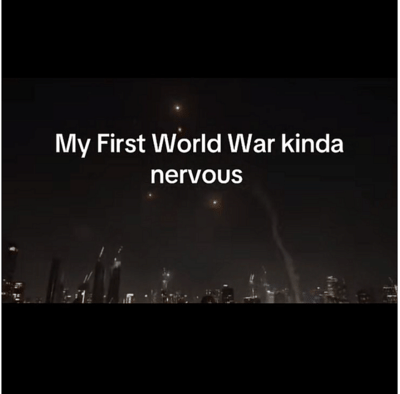
When conflicts escalate between countries and headlines scream of missiles, invasions, and rising death tolls, many brace themselves for the relentless barrage of news and information.
But for some in the younger generation, the first instinct is to open social media, scroll through memes, and laugh amid the grim reality. To them, this isn't being insensitive; it is how they process the chaos, understand what’s happening and feel a little less alone.
Experts say this kind of dark humour is often a coping mechanism, especially for those who have grown up surrounded by crisis with no real way to respond. To some, it may appear to be apathy. But for many Gen Z and Gen Alpha youth, it's the only way to cope with the weight of a world constantly in crisis.
“In a weird way, we’re just trying to make sense of the chaos,” said 22-year-old Noura, who lives in Dubai. "If we don’t laugh about it, we'll break down. And to be honest, sometimes we are laughing while we're breaking down."
Stay up to date with the latest news. Follow KT on WhatsApp Channels.
Noura, a Sudanese, said she doesn't see memes as jokes made at someone's expense but as a way to speak about things that feel too heavy to say out loud. "Sometimes it’s the only way we can talk about what’s going on without crying or feeling helpless," she said. "It’s not that we don’t care; it’s that we care too much, and we don’t know what to do with it."
The internet has shifted the emotional register of how young people process violence. Memes have become the language of response, reaction, and survival. While older generations might turn to family or pray, this generation edits a video, adds text, emojis, and lets their worries go viral.
Psychologists say it's not a sign of detachment but of a coping mechanism born out of overstimulation.
"We're looking at young people who have grown up surrounded by endless bad news, with no real break," explained Dr Lina Farouk, a clinical psychologist based in Abu Dhabi. "They’re bombarded with images of war, school shootings, climate disasters, and economic collapse, all on the same screen they use to talk to friends or watch cat videos. Humour becomes a way to protect themselves from emotional burnout."
During the early days of the Russia-Ukraine war, jokes about WW3 flooded social media platforms. When tensions rose between Iran and Israel, TikTok users responded with skits pretending to be drafted soldiers or posting sarcastic “fit checks” for the apocalypse. In Gaza, young people facing unimaginable realities still found moments to post memes that reflected both horror and resilience, sometimes even while the bombs rained down.
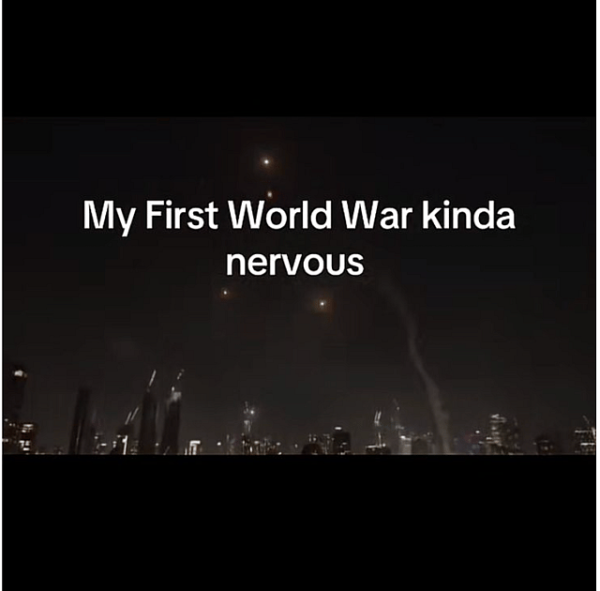
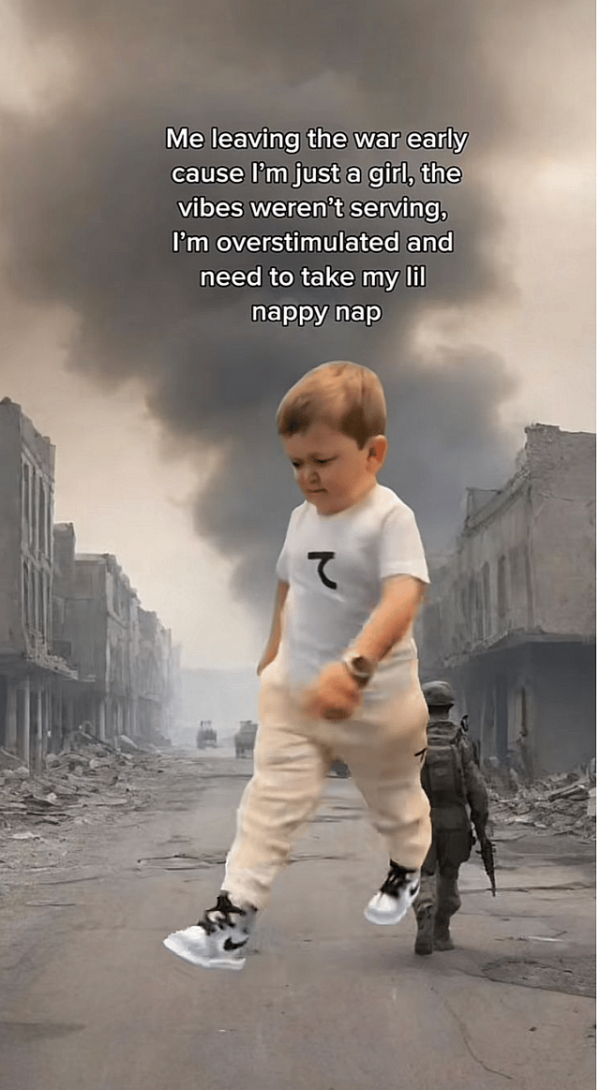
"This is not mockery,” said Rami, a 26-year-old Palestinian content creator. “Sometimes humour is the only way to tell the truth without being censored or shut down. Sometimes, it’s the only way to stay sane.”
The internet has made every conflict feel close. And in a culture where there’s little time to pause, the reaction is often immediate. But the backlash can be just as fast. Critics argue that trivialising war through memes risks desensitising people to the reality of human suffering. Others say it can be deeply disrespectful to those directly affected.
Still, digital culture doesn’t always fit traditional moral frameworks. And for young people, the line between sincerity and irony is often blurred. A meme can be both painful and funny at the same time. It can criticise, grieve, and mock, all in one post.
Experts suggest that this isn’t a passing trend but rather a reflection of how digital natives now experience the world. "We’re witnessing the emotional evolution of an entire generation," said Dr. Farouk. "They may not have the same tools we did, but that doesn’t mean they’re not feeling it. In fact, they might be feeling it too much."
'I'm so scared': Dubai expats anxiously await return of family stuck in war zones 'I thought I'd moved on': Some war survivors in UAE triggered by violent images on social media Fake or real? Israel-Palestine conflict sees 'tsunami of misinformation' flood social media-
Aankhon Ki Gustaakhiyan Trailer: Shanaya-Vikrant’s Chemistry Shines In This Unusual Love Story
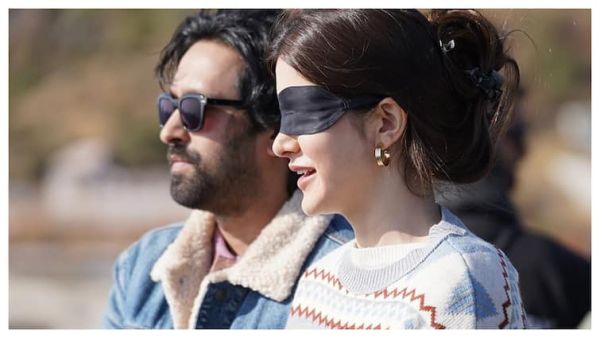
-
J&K Weather: Srinagar Experiences Hottest June Since 1978, Qazigund Warmest In Over 50 Years

-
Irfan Pathan backs this star pacer to play if Jasprit Bumrah not available for 2nd India vs England Test at Edgbaston

-
You won’t believe what Aishwarya Rai told Abhishek Bachchan about divorce rumours
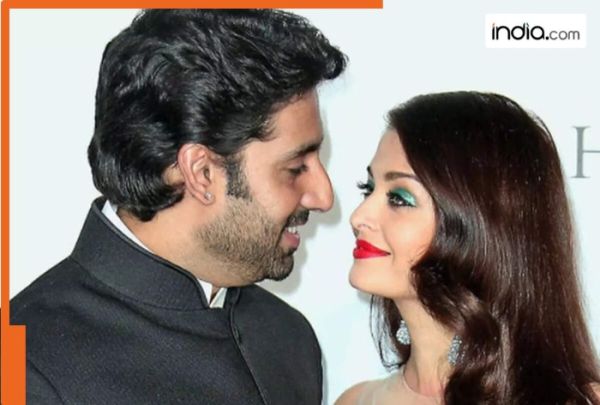
-
Poonam Dhillon makes shocking remarks about Sridevi, says actress played dumb to avoid…
